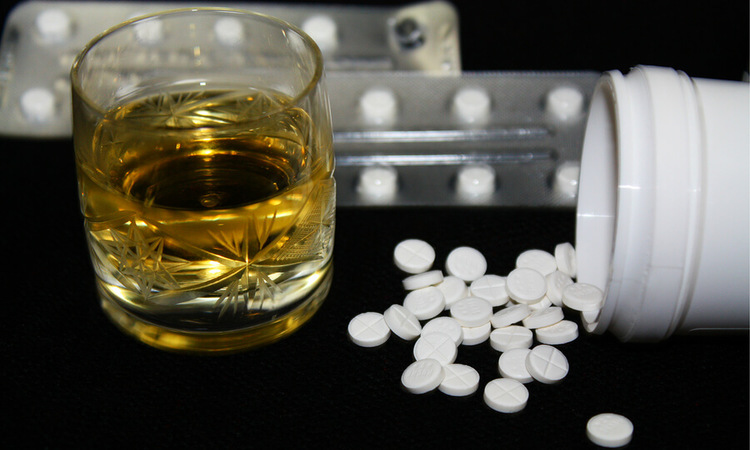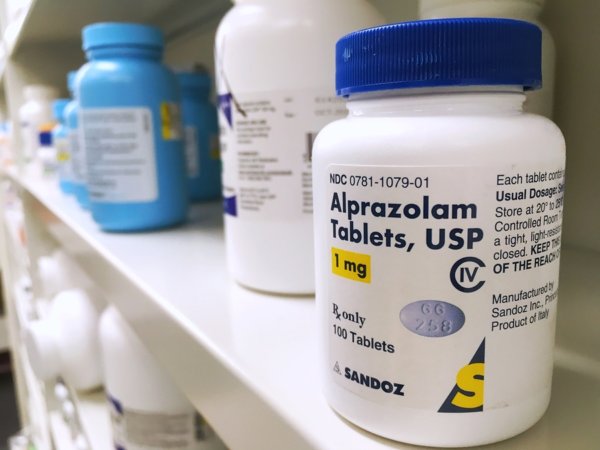
Depressant Drug List – Depressants are psychoactive drugs that suppress the central nervous system (CNS) and work by impacting neurochemicals in the CNS. This action leads to effects such as relaxation, drowsiness and sleepiness, reduced inhibition, anesthesia, coma, and, in extreme cases, death. Most depressants are considered to have a high potential for abuse and addiction.
While depressants are all similar in their ability to reduce activity in the CNS, there are some key differences among drugs within this class. Some are safer to use than others or should only be used as directed by a physician.
Depressant Drug List and Facts
Types of Depressants
Drugs that are categorized as depressants include:
- Ethyl alcohol
- Barbiturates
- Benzodiazepines
Ethyl Alcohol
Ethyl alcohol (or just alcohol) is one of the most commonly used psychoactive substance in the world, second only to caffeine. Although alcohol is legal, it has a high potential for abuse, dependence, and addiction. According to the Substance Abuse and Mental Health Services Administration (SAMHSA), in 2014, nearly 61 million people in the U.S. over age 12 reported binge drinking. Another 16 million persons over age 12 stated they had engaged in excessive drinking.
The social costs of alcohol abuse are also significant. According to a 2000 report by the American Psychiatric Association (APA), approximately 50% of all assaults, homicides, and highway fatalities involve alcohol.
Barbiturates
Barbiturates, also referred to as “downers,” are CNS depressants that induce feelings of euphoria and relaxation. Barbiturates were once considered relatively safe but are now known for their abuse and overdose potential. They can have a significant impact on sleep patterns and result in suppressed REM sleep. Because barbiturates can be dangerous, they are rarely used today to treat insomnia or anxiety.
Common barbiturates include the following:
- Luminal (phenobarbital) – used to prevent seizures
- Amytal sodium (amobarbital) – used to treat sleep problems
- Seconal (secobarbital) – short-term treatment for insomnia
Benzodiazepines
Benzodiazepines (benzos) are CNS depressants routinely prescribed to treat sleep problems, such as insomnia and anxiety. Around the turn of the 21st century, at least four different benzos were in the top 100 most commonly prescribed medications.
Because they are highly effective and have a relatively low toxicity, benzos are frequently prescribed as a short-term treatment for insomnia or anxiety. Their potential for addiction, however, makes them not ideal for the long-term treatment of conditions such as generalized anxiety disorder, post-traumatic stress disorder, and panic disorder.
Benzos have sedative, muscle-relaxing, and anticonvulsant effects. Because of this, benzos are prescribed, sometimes off-label, to treat a variety of conditions, including insomnia, anxiety, agitation, muscle spasms, and seizures. They are generally considered safe in the short-term, but chronic use can lead to tolerance, dependence, and withdrawals when the user tries to discontinue use.
Some common benzodiazepines are:
- Xanax (alprazolam) – used to treat anxiety and panic disorder
- Valium (diazepam) – used to treat anxiety and panic disorder, seizures, and muscle spasms
- Klonopin (clonazepam) – used to prevent seizures

Uses for Depressants
Depressants are frequently prescribed to relieve symptoms resulting from the following disorders:
- Depression
- Insomnia
- Seizures
- Generalized and social anxiety
- Panic disorders
- Obsessive-compulsive disorder (OCD)
How Depressants Work in the Brain
Most depressants act on the brain by boosting the activity of GABA (gamma-aminobutyric acid), a neurotransmitter. By increasing GABA, brain activity is decreased as a result, and feelings of relaxation and drowsiness are produced.
Researchers believe that alcohol may work a bit differently, however. Although alcohol is believed to stimulate GABA’s effect in the brain, attaching to GABA receptors and inhibiting neuronal signaling, it also inhibits the major excitatory neurotransmitter, glutamate. Furthermore, it releases other inhibitors including dopamine and serotonin.
Moreover, consuming even small amounts of alcohol increases dopamine in the brain region known as the nucleus accumbens – one of the centers responsible for feelings of reward. Experts believe it is likely that GABA and glutamate work together to produce a cycle of positive reinforcement.
Opioids and Polydrug Intoxication
Opioids are in a class of drugs referred to as painkillers, but also have some properties that can cause CNS depression. For this reason, in high doses, certain opioids including heroin and fentanyl can produce life-threatening complications.
Although overdose by alcohol or benzodiazepines on their own may be somewhat difficult, combining them or incorporating another substance that can depress the CNS, such as barbiturates or opioids, constitutes polysubstance abuse, which dramatically increases the risk of a life-threatening overdose.
Treatment for Depressant Addiction
Persons who have a dependence on depressants should undergo a medical detox. Both alcohol and benzo withdrawal can result in death in extreme cases, so they should be closely monitored and managed with medication. In the case of benzo addiction, the patient may need to be on a tapering schedule that continues for several weeks.
Immediately following detox, persons who were dependent on depressants are urged to participate in an addiction treatment program. Our center offers evidence-based modalities such as behavioral therapy, counseling, and group support, among other essential therapeutic services.
Recovery By The Sea employs professional staff who have expertise in addiction and can provide clients with the tools they need to regain their sobriety and experience long-term recovery and wellness.
If you or someone you love is addicted to depressants, please contact us as soon as possible to discuss treatment options!